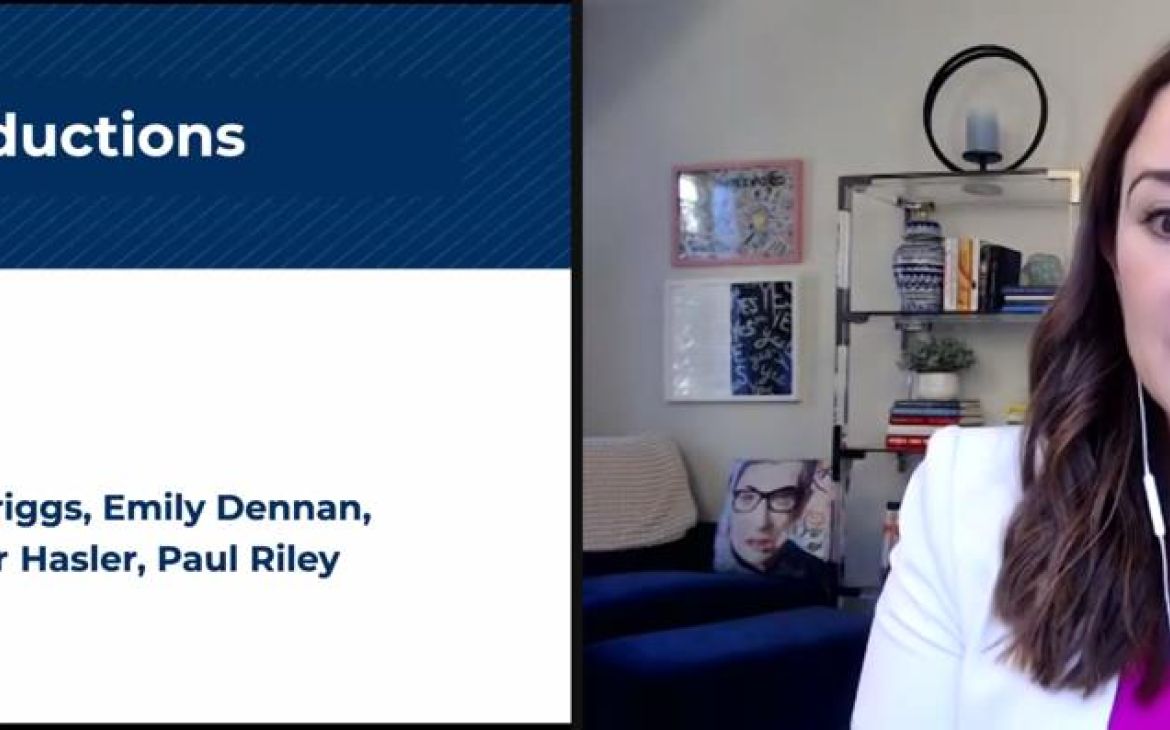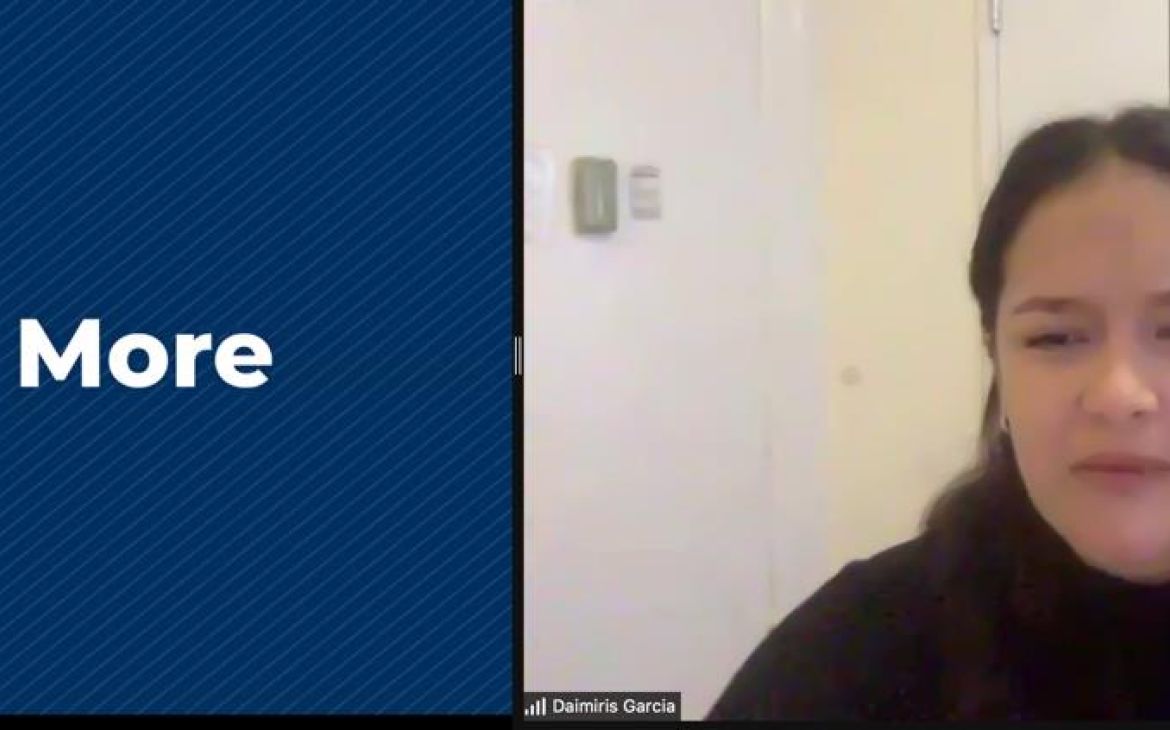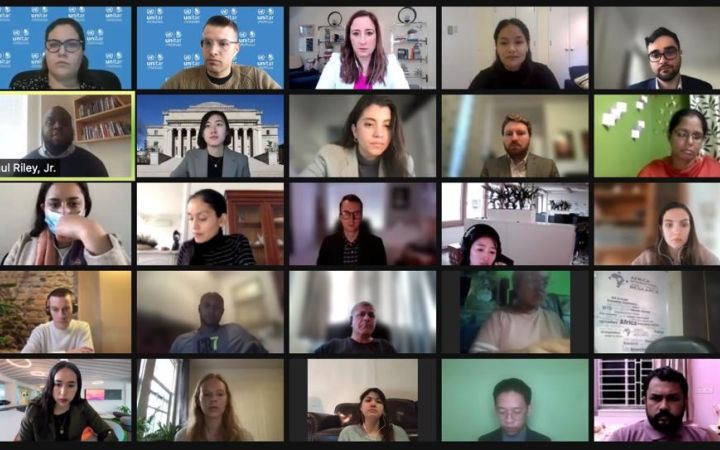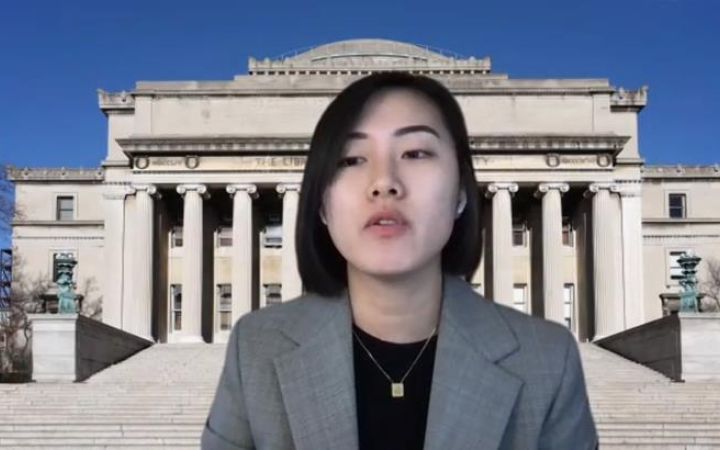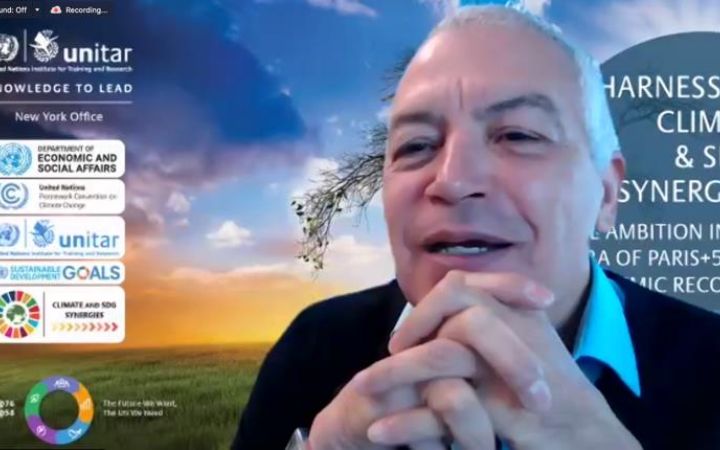03 November 2021, New York, United States (Virtual) – The United Nations Institute for Training and Research (UNITAR) New York office, in partnership with Columbia Law School, kickstarted the three-event Fall 2021 presentations with Gender Equity in Peacebuilding and the Workplace on Wednesday 3 November. Garnering a total of 110 participants from around the world, the event successfully highlighted the struggles faced by women in the workplace, and how best to combat gender inequality in social settings, focusing on the workspace.
The event started with Mr. Pelayo Alvarez, programme coordinator of UNITAR New York Office introducing the Fall 2021 UNITAR - Columbia Law School Mediation series. Ms. Alex Carter gave an opening statement, which included an overview of the event explaining the impetus for the collaboration between Columbia Law School and UNITAR. Ms. Sophia Han provided a definition of the general terms to be used throughout the session, and emphasized the importance of using inclusive vocabulary, being sensitive, and double-checking pronouns and preferred names. This was followed by an icebreaker where participants were asked to think about the barriers that might hinder full gender equity in negotiation, peacebuilding, and/or conflict resolution. Participants were quick to respond with a number of suggestions, such as culture, racism, ignorance, patriarchy, and discriminatory laws, amongst others.
Mr. Paul Riley, Jr. gave a formal presentation on the Pervasiveness of Gender Bias. In a study conducted across 75 countries, only 14% of women and 10% of men were found to be without gender norms bias. The findings suggest that 90% of men and women who participated in the study held some sort of bias against women. Furthermore, 50% of men and women believe men make better political leaders, and 40% of men and women believe that men make better business leaders, which proves an inherent bias against women across all genders.
Ms. Amaya Contreras Driggs delved into the issue of Women in Negotiations. She explained that when women are involved in the negotiating process, better and more lasting agreements are likely to ensue. Mr. Ben Childress shifted the topic to Women in Self-Advocacy. Studies have shown that societal expectations for men and women are vastly different, and that these expectations impact communication styles. One example is that women have a tendency of saying “we” even when they do all the work on their own, whilst men use “I” even when there is team effort involved. This highlights the issue of the gender gap and self-promotion, and how women are less likely to claim expertise in a particular field. For example, when asked if there were any breastfeeding experts in the room, one man raised his hand, and claimed some expertise due to observing his wife breastfeed their child for three months; women, on the other hand, refused to raise their hands. During self-assessment exercises, women have a tendency to describe themselves less positively out of fear of being seen as “vain” or “self-absorbed”; additionally, women face challenges in speaking up in social settings, they are perceived as either being too loud and aggressive or too shy and quiet.
Ms. Emily Dennan focused on the challenges women face in sharing their thoughts in the workplace, a problem which is even worse for women of colour. During former President Barack Obama's administration, female staff used a strategy known as Amplification. In other words, when a woman made a suggestion during a meeting which was ignored, another woman would step in and repeat what was said to amplify her voice and force the men in the room to acknowledge the contribution, and ensure that they were unable to claim the idea as their own.
Mr. Parker Hasler presented a strategy based on asking Open and Close Ended Questions, because Open Ended Questions place the focus and attention on the other person, whilst Close Ended Questions are more directive. Ms. Daimiris Garcia's strategy involves mirroring, that is, asking questions of onself, having an internal dialogue. It helps to ask the right questions — women need to ask open ended questions to clarify their goals, interests, and emotions, and to solve problems. At the end of the session, participants were directed into breakout rooms to share and exchange their thoughts on the course and its contents. Mr. Marco A. Suazo brought proceedings to a close with a reminder about the upcoming sessions in the series, namely, the Leadership and Self-Awareness Program on Wednesday 17 November 2021, and the Conflict Resolution in the Age of Burnout event on Thursday 2 December 2021. Participants who complete the series will receive a certificate.


